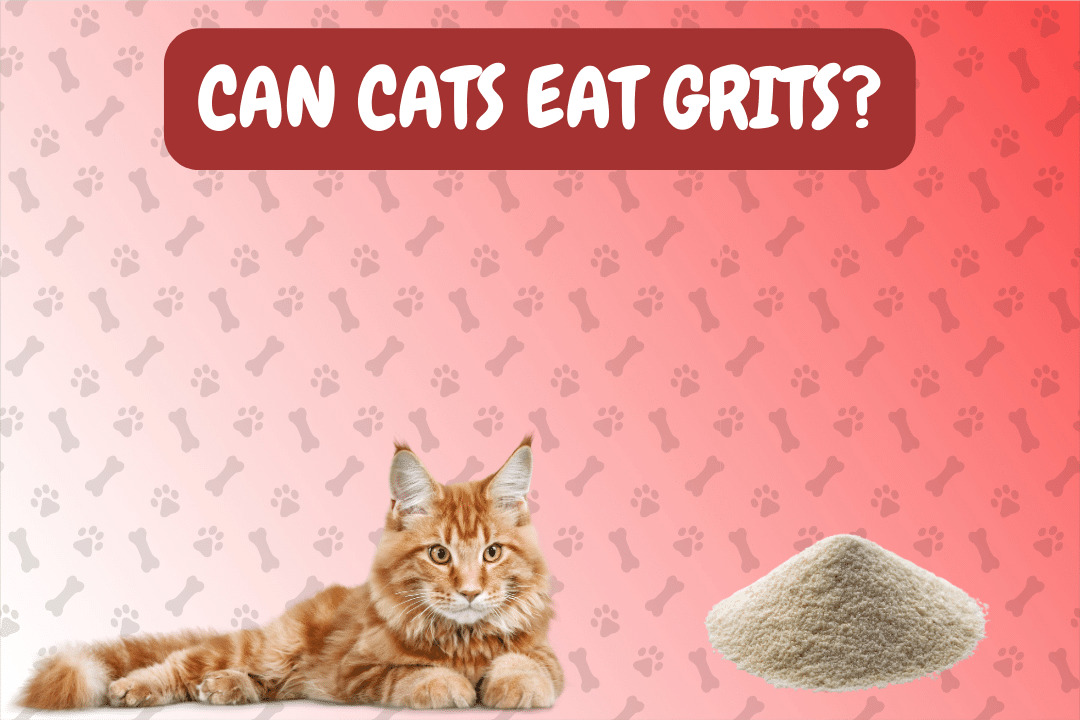No, cats can’t eat grits because they provide little to no nutritional value for felines and may pose digestive issues.
Table of Contents
Introduction
Cats are known for their discerning palates, and as responsible cat owners, we must ensure their diet meets their nutritional needs. In this article, we’ll explore whether can cats eat grits and why it’s generally not advisable. We’ll delve into the nutritional value (or lack thereof) of grits, potential risks, and provide guidance on feline dietary requirements.
Nutritional Value
Grits are made from ground corn, primarily consisting of carbohydrates. While they are a staple in some human diets, they offer little nutritional value for cats. Cats are obligate carnivores, meaning their diet should mainly comprise animal-based proteins. Grits do not provide the essential nutrients that cats require for their overall health.
Potential Risks
Feeding grits to cats can pose several risks. Cats may have difficulty digesting carbohydrates efficiently, which can lead to digestive problems such as diarrhea or upset stomach. Additionally, grits may contain added ingredients like salt or butter, which can be harmful to cats in excess. It’s crucial to avoid introducing unnecessary ingredients into a cat’s diet.
How to Serve Safely
It’s best to avoid giving grits to cats altogether. Instead, focus on providing a balanced cat food formulated to meet their specific nutritional requirements. High-quality commercial cat food provides the protein, vitamins, and minerals essential for a cat’s well-being.
Serving Suggestions
For treats or occasional variety in your cat’s diet, consider offering small portions of cat-safe foods such as cooked plain chicken or fish. These options are more aligned with a cat’s dietary needs and preferences.
Special Considerations
Cats may have individual allergies or sensitivities to certain foods. It’s essential to monitor your cat’s reaction when introducing new foods and consult with a veterinarian if you suspect any adverse reactions.
Expert Opinion
Veterinarians and feline nutrition experts unanimously discourage feeding grits or other carbohydrate-heavy foods to cats. Cats have unique dietary requirements, and their health thrives on a diet rich in animal-based proteins.
Conclusion
In conclusion, cats should not be fed grits due to the lack of nutritional value they provide and the potential digestive issues they may cause. To ensure the health and well-being of your feline companion, stick to a balanced diet of high-quality commercial cat food formulated to meet their specific dietary needs.
FAQ
Q1: Can cats eat plain, unseasoned grits in small amounts?
A1: While plain, unseasoned grits are less likely to cause harm, they still lack nutritional value for cats. It’s better to provide them with foods that align with their dietary needs, such as high-quality cat food.
Q2: Are there any grains that cats can safely eat?
A2: Cats are obligate carnivores, and their diet should primarily consist of animal-based proteins. While they can digest small amounts of grains, it’s not necessary or beneficial to include grains in their diet.
Q3: Can cats eat other types of corn products?
A3: Cats should avoid most corn products, as they are high in carbohydrates and do not provide the essential nutrients that cats require. It’s best to focus on protein-rich foods for cats.
Q4: What are some safe treats for cats?
A4: Safe cat treats include commercial cat treats made specifically for felines or small portions of cooked plain chicken or fish. Always ensure treats are appropriate for cats and fed in moderation.
Q5: Can cats eat cheese grits?
A5: Cats should not consume cheese grits or any dairy-based products in significant quantities, as many cats are lactose intolerant. Dairy can lead to digestive issues in cats.
Q6: Can kittens eat grits?
A6: Kittens have specific nutritional requirements for growth. While grits are not suitable for their regular diet, it’s essential to provide them with a balanced kitten food that meets their growing needs.
Q7: Can cats develop allergies to grits?
A7: Cats can develop allergies or sensitivities to various foods, including grains like corn. If you suspect your cat has a food allergy, consult with a veterinarian for proper diagnosis and guidance.
Q8: Can cats eat cornmeal or cornflour?
A8: Cats should generally avoid cornmeal or cornflour, as these are derived from corn and provide little nutritional value for felines.
Q9: Can cats eat cornbread?
A9: Cats should not be given cornbread, as it typically contains cornmeal, which offers little nutritional benefit for cats and may lead to digestive issues.
Q10: Can cats eat corn on the cob?
A10: Cats should never be given corn on the cob. The cob can pose a choking hazard, and the kernels offer little nutritional value for felines.
For more food informations about Cats, keep reading our blog.
Hello! I’m Max Walley, a pet enthusiast who knows a lot about what our animal buddies can munch on and what’s a no-no. With ‘canpeteat.it,’ I’m here to help pet owners make smart food choices. Come with me as we dive into the world of pet nutrition, discovering what keeps our furry pals joyful and in tip-top shape. Let’s explore this adventure together!


